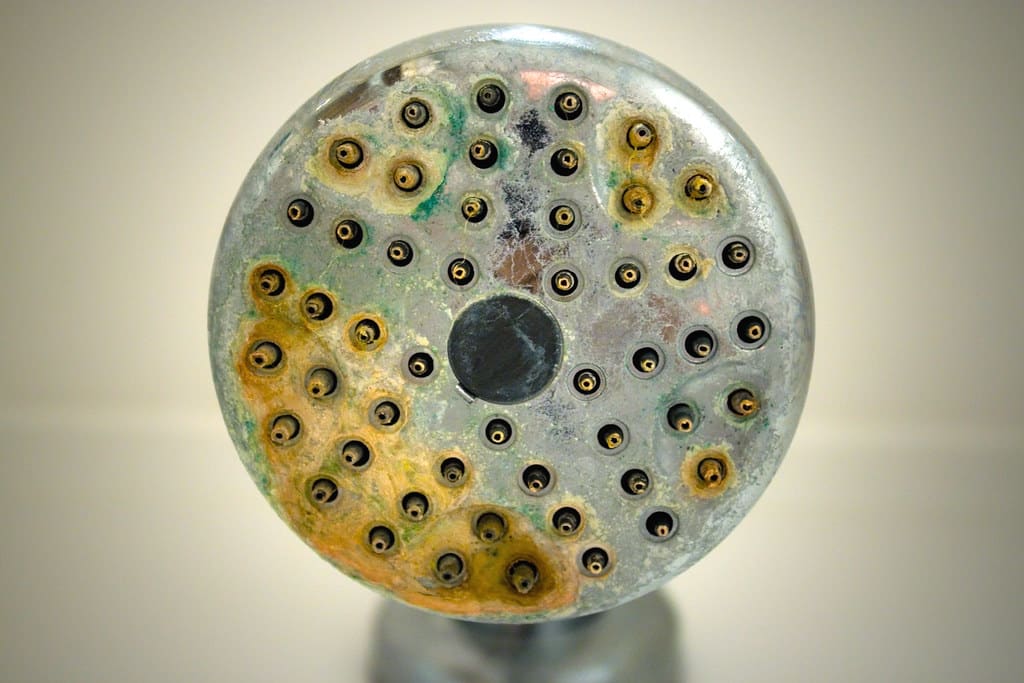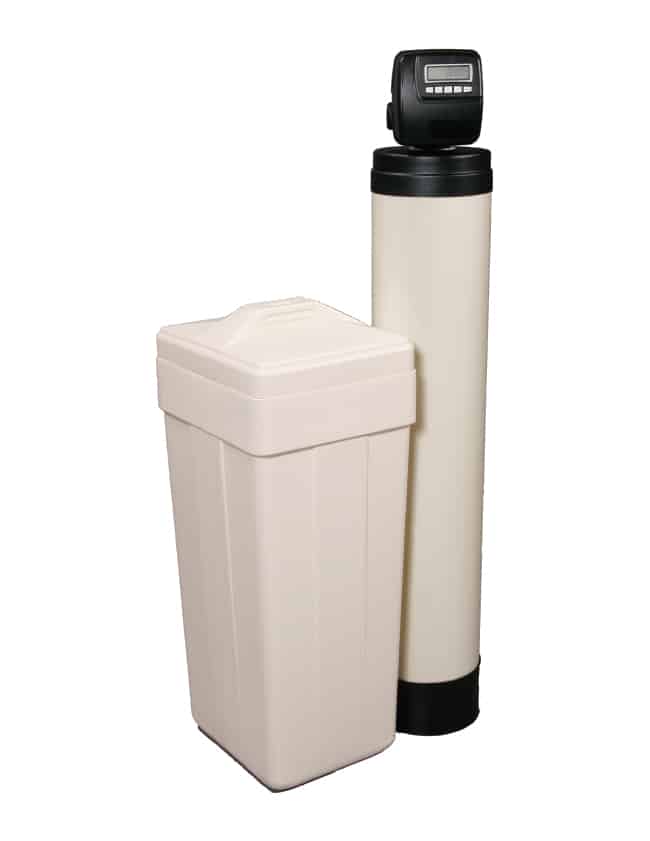We often hear the term water softener, but have you ever questioned how they work?
Compared to concrete or wood, water feels pretty “soft”, doesn’t it?
In fact, water softeners are so named because they were created to do one thing. Combat hard water.
What is Hard Water?
Put simply, hard water is just water with a higher amount of harder minerals in it.
Water is considered the “universal solvent” which means it dissolves all the matter it touches. But, if you remember from elementary school science classes, matter can neither be created nor destroyed. So as water passes from a liquid to a vapor and back again, it doesn’t lose the minerals it dissolves-it absorbs them. The “harder” minerals (most commonly calcium and magnesium) present as stains on your toilet, noises in your water heater, or bad hair days.

According to some estimates, nearly 85% of homes have hard water. Hard water destroys appliances, leaves filmy soap scum on bathtubs or sinks, and causes dry hair and skin. If left untreated, hard water will leave scale deposits which will eventually clog plumbing and reduce the life of sinks, dishwashers, washing machines, and any other appliances that utilize water.
What is a Water Softener?
A water softener is a whole-house water filtration system that removes minerals from your water through a process called ion exchange-eliminating the effects of hard water.
Waters softeners have been found to extend the life of household appliances and plumbing by as much as 30% but the tangible effects can really be felt in your daily life.
Your clothes will feel softer, look cleaner, appear brighter, and last longer (up to 40%). The dishes will be easier to clean. Soap scum and water stains will be a thing of the past. With soft water, body soap will lather better and rinse off easier and you can say goodbye to stains on your sinks, toilets, and shower.
How Does a Water Softener Work?
Water softeners come in a variety of sizes and configurations to meet the needs of your family but the basic premise is simple. The hard water passes through a media tank that contains resin beads which are coated with sodium ions. The hard mineral ions are exchanged for softer sodium ions, softening the water.
Over time the resin beads in the media tank reach maximum capacity and can’t exchange any more mineral ions. At this point, the media tank needs to be regenerated. This is where the larger brine tank comes into play. The brine tank holds a concentrated solution of salt (or potassium) to “regenerate” the sodium resin beads in the media tank. Salt is manually added to the brine tank in the form of pellets or blocks which dissolve in the water at the bottom of the tank.

Water softeners can be manual, semi-automatic, or automatic-referring to the way they handle regeneration. The up-front cost increases as they become more automatic because the system requires more components than a manual water softener. However, the cost is recouped on the back-end as automatic softeners tend to be easier and less expensive to maintain.
Let Perry’s Help You Find the Perfect Water Softener
If you are experiencing some of the common problems associated with hard water but don’t know where to start, trust the pros at Perry’s to help.
One of our experienced technicians will visit your home to conduct a free water test and site assessment that includes:
- Testing water for hardness (calcium & magnesium), iron, hydrogen sulfide, and acidity.
- Performing a visual inspection of your homes plumbing and water consuming fixtures and appliances.
- Determining your average water demand based on the number of people in the home and water consuming fixtures and appliances.
- Recommendations on the type and size of equipment that will best take care of your hard water problems and fit your lifestyle.
Perry’s is family owned and operated and uses only parts manufactured and assembled in the US. Let us utilize our 30+ years of experience with water systems to help you choose and set-up your whole house water softening system.
Call in the Professionals at Perry’s Pump Repair for All Your Water Pump Maintenance Needs
A tripped water pump circuit breaker can be quite frustrating. Not only does it indicate a problem, but it keeps water from flowing into your home. While we may not be electricians, we are well pump experts, and we can tell you what needs to happen next. We’ll help you identify what the issue is, how to fix it, and treat it to last with our warranty guarantee if we can help. Call us today to see how we can help keep your water pump properly functioning and maintained.
Get a Free Quote
